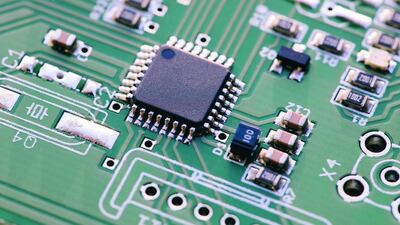Yesterday morning, I woke up to discover that my nine-month-old iPhone had unceremoniously emptied its contacts folder. All 452 names, numbers and email addresses had vanished without me even prodding its screen, which put something of a dampener on the rest of my day, as you can probably imagine. And yes, I’m well aware that there are far worse things I could have woken up to discover, but it’s been a massive inconvenience, if only because I’ve since been unable to detect certain callers’ identities before deciding whether or not to answer incoming calls.
Restoring the phone’s pre-meltdown settings via some cloud or other did result in a reappearance of all those names and numbers, but that only lasted for a few seconds before I was back to square one. Doing this also caused dozens of recent photos, notes and messages to vanish into the ether. And this, ladies and gentlemen, is why I still don’t completely trust cars that are seemingly overdependent on computing power to do what they’re designed for. Computers throw hissy fits when you least expect them, and, when your driving is concerned, the chance of this happening shouldn’t even enter the equation.
Recently I drove a new Infiniti – the Q50 – which is the world’s first production model to feature completely electronic steering. With no mechanical bits and pieces between the wheel that steers and the wheels that are steered, Infiniti claims the benefits of this revolution are many. It’s true that driving over rough surfaces sends not a single vibration through the steering wheel, but, for the life of me, I cannot understand why Infiniti chose to spend an entire decade bringing this to market. It’s clever but, ultimately, nonsensical, especially in light of the fact that, much to the chagrin of Infiniti’s engineers, legislators insist on there being a mechanical backup, just in case the electronics fail.
“It’s based on technology used in the aviation industry,” was Infiniti’s retort when I questioned its reliability. But, I countered, when a passenger jet lands, it’s inspected and checked over by dozens of technicians and specialists before it’s allowed back in the air. After a decade of hard service at the hands of who-knows-how-many drivers, could anyone say a Q50’s electric steering is completely safe? Of course not. Personally, I like knowing that there’s a strong, physical link between my steering wheel and the front wheels – not just a computer.
So many cars are fitted with so many technologies these days that I find myself gravitating towards more-analogue machines. My own car suits my needs just fine – it has a traditional handbrake, for instance, and I have to use an actual key to start it. But the Corvette Stingray that I recently tested didn’t even have mechanical door releases, instead having electronic push-button affairs – something that I would consider to be a deal breaker. If I need to open a door in an emergency, I want to know that the force I am exerting on its handle is being translated into other mechanical forces that cause it to unlock. I don’t need or want an electrical current involved.
I’m not suggesting for a second that computers and cars shouldn’t mix, and the more vehicles I experience that are fitted with them, the more I am growing to love 360-degree cameras when it comes to parking. Being a perfectionist, you see, I like the fact that they help enable perfectly straight positioning in any car-park space – it’s most satisfying.
But when it comes to steering, accelerating, braking, switching on headlamps or operating windscreen wipers, I’m more than capable of doing it myself without the assistance of some computer chip. As my iPhone has just proved, these machines are not infallible and, when they do “fail to proceed”, the effects can be maddening in the extreme. In a car, the effects could be fatal.
Follow us @LifeNationalUAE
Follow us on Facebook for discussions, entertainment, reviews, wellness and news.

